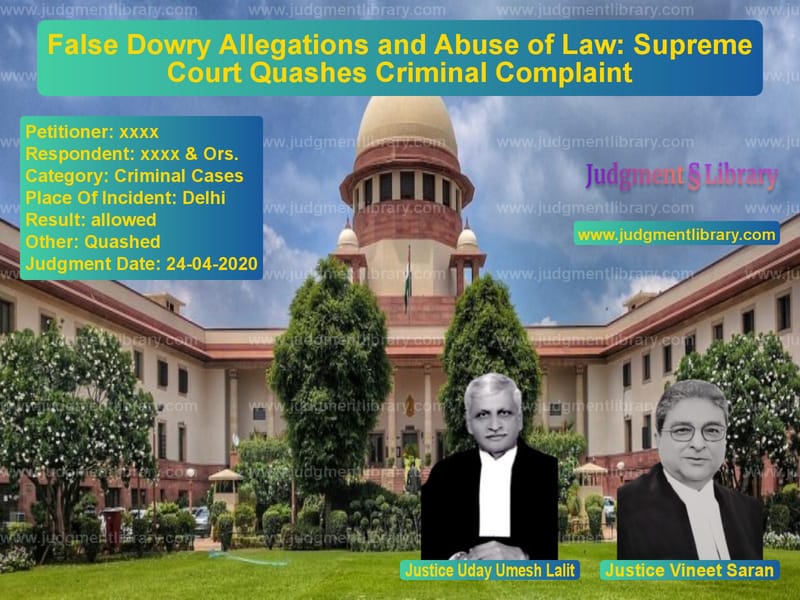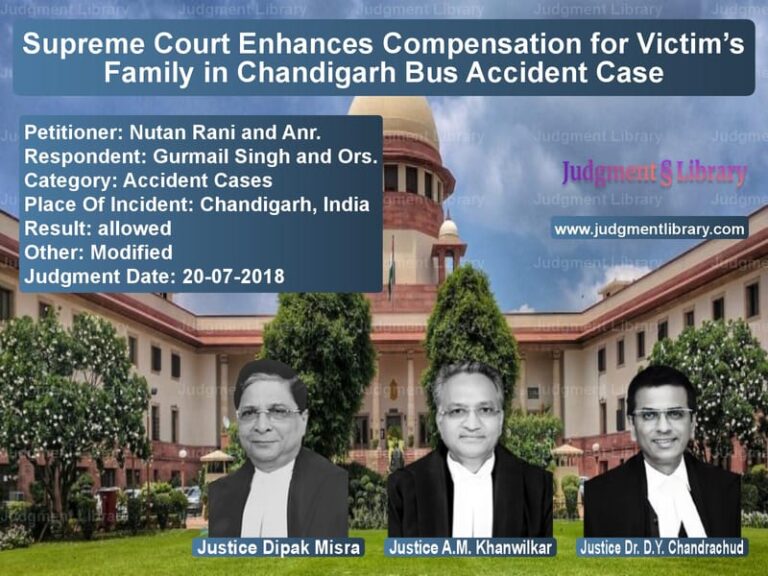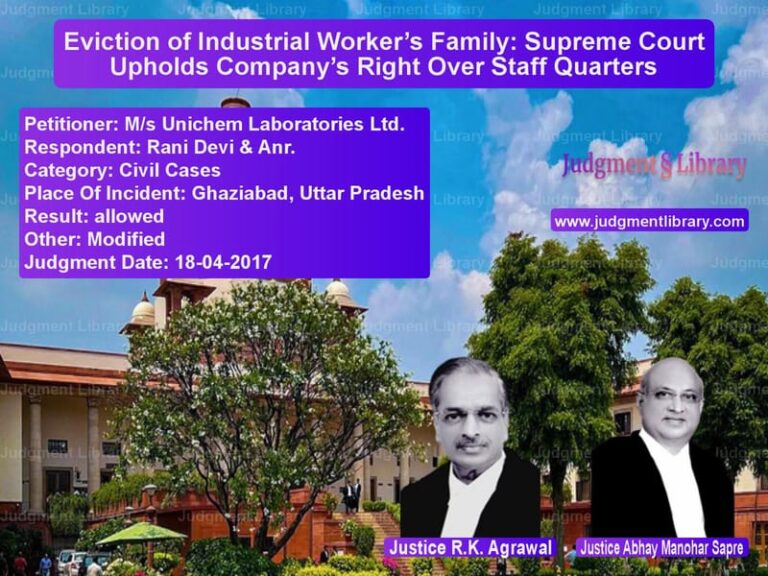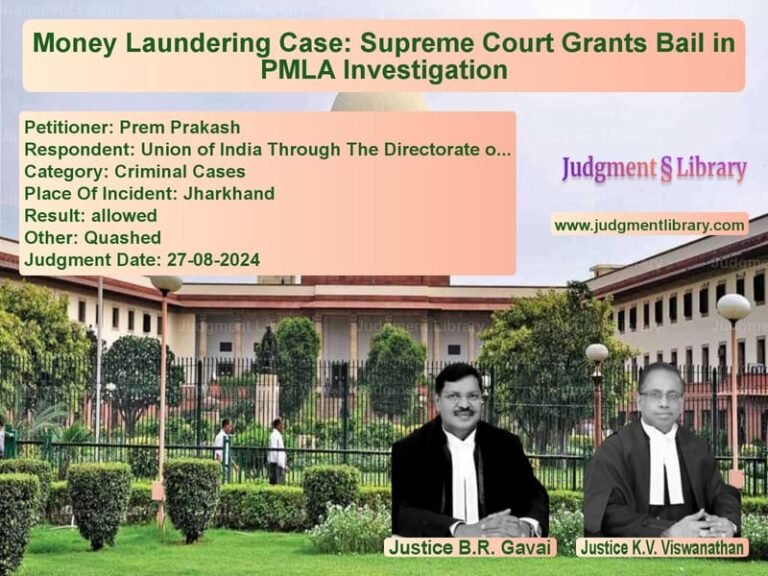False Dowry Allegations and Abuse of Law: Supreme Court Quashes Criminal Complaint
The Supreme Court of India has delivered a significant ruling in the case of xxxx vs. xxxx & Ors., addressing false allegations under Sections 498A and 406 of the Indian Penal Code (IPC). The case revolved around a marital dispute where the complainant-wife accused her husband and in-laws of harassment and misappropriation of her Stridhan. The Court ultimately quashed the criminal proceedings, deeming the complaint an abuse of the legal process.
Background of the Case
The complainant and her husband were married on July 28, 2007, in Delhi. They lived together in Mumbai, where both were working. However, their relationship deteriorated, and they started living separately from June 10, 2009. Shortly thereafter, the husband filed a divorce petition on July 24, 2009, before the Family Court in Bandra, Mumbai. The divorce case remains pending.
After nearly three and a half years of separation, the wife filed a complaint on January 28, 2013, in Delhi, seeking registration of an FIR against her husband and in-laws under Sections 406 (criminal breach of trust) and 498A (cruelty). She provided a list of Stridhan articles, alleging they were in the possession of the accused. Consequently, an FIR was registered on October 29, 2014.
Arguments by the Petitioner (Husband and In-Laws)
- The complaint was filed after an inordinate delay of more than three years from their separation, making it time-barred under Section 468 CrPC for offenses under Section 498A IPC.
- There was no evidence of continuous cruelty or harassment beyond June 2009.
- The Stridhan articles, along with a pay order of Rs. 5,98,000, were deposited with the Investigating Officer on June 16, 2015, after the complainant refused to accept them.
- The complainant subsequently filed an additional list of Stridhan articles in 2016, more than seven years after the divorce petition was filed, indicating an afterthought.
- The allegations were made solely to exert pressure on the husband and his family.
Arguments by the Respondent (Wife)
- The delay in filing the complaint was justified as the harassment continued even after their separation.
- The additional list submitted in 2016 included items gifted by her family and friends.
- The entrustment of Stridhan was primarily with the mother-in-law, and thus the charges under Section 406 IPC should continue.
Supreme Court’s Analysis and Judgment
The Supreme Court examined the allegations, timelines, and the legal provisions applicable in such cases.
- It noted that the wife and husband had been living separately since June 2009, and there was no material evidence to show continuous harassment beyond that date.
- Since the complaint was filed in 2013, well beyond the three-year limitation period, it was deemed time-barred for offenses under Section 498A IPC.
- The Court rejected the wife’s argument regarding additional Stridhan articles filed in 2016, calling it an afterthought aimed at prolonging the criminal proceedings.
- The Court also observed that the husband had already deposited the Stridhan items listed in 2013 along with the pay order, proving his willingness to return them.
- The judgment emphasized that every day of non-return of Stridhan does not constitute a new offense under Section 406 IPC. Therefore, the continuation of proceedings against the mother-in-law was unjustified.
The Supreme Court concluded that the filing of the criminal complaint was a pressure tactic by the wife against her husband and his family. It ruled:
“The allegations of the complainant with regard to non-return of the Stridhan articles and the charges under Section 406 against the mother-in-law (or any other accused) are not sustainable in law.”
Accordingly, the Court quashed the FIR in its entirety, bringing an end to the criminal proceedings against the husband and in-laws.
Key Takeaways from the Judgment
- Time-Barred Complaints: A complaint under Section 498A IPC must be filed within three years of the alleged cruelty. Delays beyond this period must be justified with substantial reasons.
- Misuse of Criminal Law: The Court reiterated that criminal proceedings should not be used as a tool for harassment or exerting pressure in matrimonial disputes.
- Stridhan Recovery Mechanism: If Stridhan is not returned, civil remedies such as recovery suits or domestic violence proceedings should be pursued instead of initiating criminal proceedings.
- Continuing Offense under Section 406 IPC: The Court clarified that merely failing to return Stridhan does not make it a continuing offense, which would otherwise allow for an extended limitation period.
- Judicial Scrutiny of Matrimonial Allegations: The judgment emphasizes that courts must carefully examine the background and intentions behind complaints filed after prolonged delays.
Conclusion
This ruling is an important precedent in cases involving false allegations in matrimonial disputes. It reinforces the principle that criminal law should not be weaponized for personal vendettas and highlights the judiciary’s role in preventing misuse of legal provisions. The judgment serves as a warning against frivolous complaints and upholds the balance between protecting genuine victims and preventing harassment of accused persons.
Petitioner Name: xxxx.Respondent Name: xxxx & Ors..Judgment By: Justice Uday Umesh Lalit, Justice Vineet Saran.Place Of Incident: Delhi.Judgment Date: 24-04-2020.
Don’t miss out on the full details! Download the complete judgment in PDF format below and gain valuable insights instantly!
Download Judgment: xxxx vs xxxx & Ors. Supreme Court of India Judgment Dated 24-04-2020.pdf
Direct Downlaod Judgment: Direct downlaod this Judgment
See all petitions in Dowry Cases
See all petitions in Domestic Violence
See all petitions in Fraud and Forgery
See all petitions in Judgment by Uday Umesh Lalit
See all petitions in Judgment by Vineet Saran
See all petitions in allowed
See all petitions in Quashed
See all petitions in supreme court of India judgments April 2020
See all petitions in 2020 judgments
See all posts in Criminal Cases Category
See all allowed petitions in Criminal Cases Category
See all Dismissed petitions in Criminal Cases Category
See all partially allowed petitions in Criminal Cases Category







